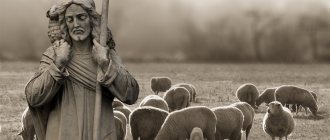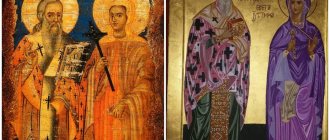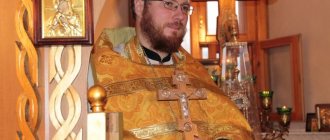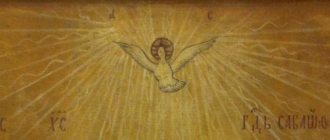When it seems that there is no hope, when we look for solutions around us and do not find them, when the adversities that befall us multiply, we look to the sky with prayer and exclaim: “Help me. Give me Your burden."
When Jesus said, “For My yoke is easy and My burden is light,” He was offering to join with us and help bear our heavy burden. Jesus makes no extraordinary demands for us to put on His yoke. “My burden is light,” He said. When we bear this burden together, our yoke becomes His; it suddenly becomes light.
God designed life's experience so that we are constantly lacking something. Our resources and abilities are rarely equal to what is required to bear our burdens. As we struggle to cope and grow, we realize that we feel a constant need to seek help from someone with greater strength and ability. No matter how hard we try, we cannot change our life plan. But once we accept that we will never be enough and that we need constant help, we will be better equipped to come to Jesus and draw strength from a Resource that never diminishes.
Great discovery
One of the greatest discoveries of life is that God can take care of us. Here are two examples:
Years after the Israelites wandered in the wilderness, the prophet Nehemiah offered a prayer of thanksgiving, remembering the ease with which God united with His people and took their burdens upon Himself:
“You, according to Your great mercy, did not leave them in the wilderness; The pillar of cloud did not depart from them by day, to guide them along the way, and the pillar of fire by night, to give them light on the way they should go. And You gave them Your good Spirit to instruct them, and You did not take Your manna from their mouth, and You gave them water to quench their thirst. For forty years You fed them in the wilderness; they lacked nothing; their clothes did not wear out, neither did their feet become swollen” (Nehemiah 9:19-21).
The Lord never left them; He was with them day and night; He instructed them and gave them manna and water to sustain them so that they would never lack. Surprisingly, neither their clothes nor their shoes became dilapidated during these forty years! Indeed, the yoke of the Lord is easy, and His burden is light.
Here is another example of what it means, “My yoke is easy and My burden is light.”
At the end of Jesus' life, shortly before He entered Gethsemane, He reminded His Apostles of that time that when they go to teach the people, they should not take with them a bag or scrip. Then Jesus asked them: “When I sent you without sack, without scrip, or sandals, did you lack anything?” And they said, “In nothing” (Luke 20:35). They had enough!
So here's the solution for those of us who are missing something:
“If any of you lacks wisdom, let him ask God, who gives generously to all without reproach, and it will be given to him; let him ask God, who gives generously to all without reproach, and it will be given to him.”
We could rephrase this verse by replacing the word “wisdom” with “anything.”
If any of you lacks something, let him ask God, who gives to everyone simply and without reproach (without subjecting them to punishment), and this [blessing] will be given to him.
Notice the all-encompassing language: “anything,” “any of you,” “everyone.” Now look at the word “simply”, that is, abundantly. It is clear that the Lord is willing to provide, in His own way, for our needs if we ask Him. If we sincerely ask Him to take this yoke with us and help bear our burdens, He will not punish us or turn away from us; rather, He will gladly give us the blessing we seek.
XXX.
DISCUSSION about the good yoke of Christ1.
(Printed in the 1844 and 1848 collections).
| For My yoke is easy, and My burden is light. (Matt. XI. 30) |
The Lord Jesus calls to Him those who labor and are heavy laden: come to Me, all you who labor and are heavy laden;
promises them peace of mind: I
will give you rest, and your souls will find peace
.
What a pleasant call! What a longed-for promise! But what means will He use to calm those who labor and to ease those who are burdened? Will the burden that was weighing them down be lifted from them? Will it save them from the labors that exhausted them? Without a doubt, He will do this: but for the first time He has something completely different in mind. He wants them to take on a new yoke: take
My yoke upon you
, he says .
O merciful Lord! Should we send those who are weary to new work? Should new burdens be imposed on those who are burdened? Are these your means of peace? - Don't be embarrassed; The Lord knows what he does; and His means, which are inconsistent with our wisdom, are consistent with the intentions of His wisdom. Those who are weary of the affairs of the flesh and the world will find peace if they take on new spiritual labor; those burdened with the yoke of the devil, bound by evil habits, burdened in conscience with sins, persecuted and oppressed by the scourges of passions will find relief and freedom if they bend their necks under the yoke of Christ: for My yoke is good, and My burden is light
.
Christians! When Jesus Christ Himself, who is the Eternal Word and Eternal Truth, found it necessary to say that the yoke
His
is good, and
His
is light
: this, firstly, confirms to us that the teaching of Christian life, to the fulfillment of which we are called, is truly beneficial and convenient to fulfill; secondly, this shows that it is really necessary for those who begin the work of the Lord to be certified in the tractability of the Christian teaching.
We still hear now the complaint to which the Divine Teacher and Savior of souls responded so long ago - a complaint about the burden of His yoke, about the severity of His teaching, about the difficulty of fulfilling His commandments. On what is this complaint based? What is this difficulty? - Without a doubt, most importantly, the teaching of Christ commands a person to go against certain natural inclinations, to overcome them, to kill them, to sacrifice them; and which requires from the Christian strict purification of not only external, but also internal actions and movements, not only deeds and words, but also desires and thoughts. Let us examine these human accusations against the Divine Truth.
The truth is not hidden that it gives people commandments that are not as light as children’s toys, but as heavy as the yoke with which draft animals are burdened. Take the yoke
.
Those who complain about the Truth should be pleased with this frank recognition of the truth. But the more openly she admits that her commandments are a yoke, the more convincing should be her assurance that this yoke is good and this burden is light. For My yoke is easy, and My burden is light.
People who are somewhat prudent, and not entirely low in feelings, will, of course, not dare to declare the demand that they always be and remain only children, forever occupied only with toys. But if you are thinking of ascending above this state, then you need to move on to practical pursuits, to labor, to exploits - to take on the yoke
.
What's the yoke
? - the disobedient will say: - man is not like working cattle; man is endowed with reason; Why not lead him from the state of childhood to the age of perfection by the paths of reason, by rules understandable to the mind, easy to the will, pleasant to the feelings? Why burden him with a yoke - with rules often incomprehensible to reason, difficult to will, unpleasant to feelings?
Well, reasonable admirers of reason; Reveal to me these simple, easy and pleasant rules, by means of which a person could easily, as if in some kind of game, win perfection and prosperity. Only I am afraid that these rules may not be too easy, or, more clearly, frivolous. For, contrary to this arrogant reason, indisputable experience testifies that in this earthly life of a person no ability is formed, no knowledge is acquired, no success is achieved without him harnessing himself to some kind of yoke, without bearing some kind of burden. . To teach a child to read and write, don’t you harness him to the cruel yoke of school hours for him, don’t you burden him with the burden of books he doesn’t understand, don’t you force him to repeat meaningless and tasteless letters all day long? What can we say about the higher education of this very mind, which wants to be the legislator of easy morality? In order to become worthy of his name, doesn’t he bow under the yoke of mentors, doesn’t he strive to lift the burdens of learning accumulated over centuries, and in order to bear them, doesn’t he torment his body with insomnia, doesn’t he tire his head with intense thoughts? In order to become rich, doesn’t a person deny himself for a long time the pleasures of luxury, doesn’t he bind himself to the strict law of frugality? In order to get the harvest, doesn’t the farmer involve himself in the yoke of the screaming cattle, and don’t the reapers bend their backs3 in front of the small ear before it serves them as food? To make clothes to cover and protect the human body from air changes, how many different arts, different labors, different tools are needed? These are the ordinary experiences of human life! How can people, who by nature think to be smarter and more powerful than nature, want to teach a person virtue more easily than literacy? Is it easier to make him spiritually perfect than to make him worldly educated? Is it easier to provide him with eternal bliss than how to acquire perishable wealth? Is it easier to obtain living food for an immortal soul than to prepare lifeless food for a mortal body? Is it easier to construct an incomparable robe of truth and glory than to construct a handmade robe of need and shame?
If the evidence of nature is not enough for people who would like to obey nature better than the Gospel: I will be more courageous; I will refer to the testimony of these very people that it is not ease and pleasantness, but difficulty and sacrifice that mark true and sublime virtue or perfection in people. Let these people, who do not like Christian deeds because they are difficult, let them say, are they surprised at deeds that do not cost any work, do not require any victory over themselves, no sacrifice? Is it a great thing when a rich man does not rob or take bribes? Isn’t it much more important when someone who does not have their daily bread does not want to acquire it through untruth? When the offended takes revenge: what is important? And the animals do the same. But when he spares the deposed enemy, then not only the wise, but also the spectacular connoisseurs of affairs extol the victor more for his victory over his own anger than over the strength of the enemy. What, in the generally accepted opinion, elevates military feats and death for the Fatherland above many other feats, if not the sacrifice of one’s own safety for the safety of the Fatherland? So, if feat and sacrifice are required of virtue in order for it to be worthy of the world and its opinion: is it possible to demand less in order for it to be worthy of God and His righteous election4? And if the need for ascetic deed and the law of sacrifice do not make worldly virtue unfulfillable, then how can one consider Christian virtue inconvenient to fulfill only because it is connected with the same need for ascetic endeavor and is subject to the same law of donation?
But in order to more directly answer why Jesus Christ imposes a certain yoke and burden on His followers, and how this yoke turns out to be good and the burden is light, let us remind those who know and accept the testimony of the Holy Scriptures5 that man
, once
in honor, without understanding
the superiority of his Angel-like state, and, deceived by the seduction of the tempter, voluntarily
joined with senseless cattle, and became like them
(Psalm XLVIII. 13), because he clung to the sensual nature, mainly before the spiritual.
As much as by the natural consequence of this action, just as much by the righteous punishment of this crime, he is now naturally under the yoke of sensuality, so that the efforts to make the yoke of the flesh pleasant destroy his spirit, and the efforts to break out from under this yoke in another way depress him6, since it is rude the yoke lay firmly upon him; has grown on him, and he, like harnessed cattle, does not have the tools to free himself from it. Thus, a person, according to the Apostolic expression, is by nature a child of wrath,
always
toiling
7 without rest;
always burdened
without relief.
In this state Christ finds him: and - note how in vain the one who labors and is burdened complains about the lightener and the tranquilizer; - does not now impose the first, but only changes his yoke; - changes the yoke of evil and heavy to good and easy, - the yoke of lusts and destructive passions for the yoke of saving commandments. And Christ's commandments are a yoke
;
because bestial lusts must be curbed, brutal passions must be tamed, and even sensual pleasure must be sacrificed, and sacrificed to the spiritual law: but the yoke of Christ’s commandments is a good yoke
, because the one under this yoke is led from a more or less bestial state to a truly human state, Angel-like, even God-like;
- is a light burden
, because the Lord, who lays it on us, at the same time graciously provides commensurate strength to bear it. The yoke of Christ is good, and the burden is light: because the more willingly a person bears it, the more good he himself becomes; and the more good he himself becomes, the easier it becomes for him to fulfill the good commandments, so that finally he does the will of the Lord with greater ease and pleasure than his own, and thus the yoke on his shoulder completely disappears or turns into wings that constantly carry him On sky.
These reflections already contain a justification of Christian truth and against another accusation that it is too strict when it requires from its follower the purification of not only external, but also internal actions and movements. Truly, the severity of Christ’s commandments persecutes idle words, unchaste glances, unclean desires, and vain thoughts: but how can this be otherwise, when a person’s mind is diligent towards evil from his youth?
(Gen. VIII. 21); and is Christ’s intention to raise this man to God, Whom no evil, no uncleanness, no vanity can approach?
Whoever would like the law of Christ to look condescendingly at the disorderly wanderings of human desires and thoughts: one can ask him whether he would agree that his children or his friends should act with him according to this condescending law? – Would a father be pleased to know that his son, apparently respectful, secretly longs for his inheritance and is waiting for the day on which he will get it? What friend would be satisfied with the caresses and services of his friend if he learned that in his soul there is no love and zeal, of which they seem to be an expression? If a person who does not see the thoughts and does not know the desires of his neighbor is not satisfied when he does not see in him an inner disposition towards himself: then how much more necessary is it that God, who tests hearts and wombs, demand purity of desires and thoughts from a person?
And that this strictness of the Gospel morality is not cruel, and its requirements, with the assistance of grace, to the extent given to each, are easily fulfilled: let the blessed, centuries-justified experiences of His perfect disciples, of whom many, of course, assure us, assure us of this. they vividly felt the grace-filled lightness when they not only bore the entire yoke of the necessary commandments, but also voluntarily applied to it the yoke of the advice of the Gospel; they renounced not only covetousness, but also covetousness itself; Not only were they denied pleasure to their flesh, but they also limited the necessary demands of the body, so that it would be all the more convenient to spread their activity in the realm of the spirit.
Rest and glorified Igon-bearers of Christ! With your examples, instructions, and prayers left for us, help us, who labor and are burdened with the burdens of the flesh and the world, to accept with faith and with love the good yoke of Christ, and in it to find rest for our souls. Amen.
PREVIOUS CHAPTER | CONTENTS | NEXT CHAPTER
Procedure for shifting the burden
Jesus showed us the order of how to shift the burden of both sin and the difficulties of life. He said: “Come to Me, all you who labor and are heavy laden, and I will give you rest; take My yoke upon you and learn from Me, for I am meek and lowly in heart, and you will find rest for your souls; For My yoke is easy and My burden is light” (Matthew 11:28-30).
Let's look at a few words and phrases in these verses:
“Those who labor” – a woman in labor descends into the valley of death to bring new life. To survive the labor of childbirth, she needs comfort and support. Jesus offers us comfort and support.
"I will calm you down." “The word “rest” has at least two meanings: “I will share your burden,” and “If you come to me, I will give you eternal life.”
“Take My yoke upon you” means “Because I am the Savior, I already bear the yoke. I will go with you and prepare a place in My yoke if you are willing to accept it.”
“Learn from Me” means “I invite you to get to know me. We are Family; we are friends. Family and friends learn about each other. When we walk together, yoked together, you will come to know Me better.”
“I am meek (patient, humble, kind, listening to your requests) and lowly in heart [not proud]” means “I want you to know about Me: I am always ready to help, and I will not hurt you.”
"You will find peace." Our journey together ends with the great promise of eternal life.
“For my yoke is easy and my burden is light” means: “You will see a noticeable difference in the weight of your load.”
In Scripture, four verbs and their corresponding phrases describe how we can lighten our burdens when we unite with Jesus:
Come to me. Take My yoke upon you; it's simple. Find out about me. Find peace.
1) Come to the Savior
Don't try to figure out how long you can keep your spirits up. Don't exhaust yourself spiritually and mentally by trying to carry your burdens alone. Come to the Savior, all of you who “toil and are heavy laden.”
2) “Take My yoke upon you”
Here are two examples where people's burdens were lightened when they took upon themselves the light yoke of Jesus Christ:
Moses' people were punished. A disaster was sent to the people of Moses in the form of poisonous snakes, which bit Moses’ people for disobedience to God. Moses made a brass serpent and raised it on a pole, symbolizing the Savior who would be raised on the cross, and invited the people to simply look at the serpent and be healed. But many died because they did not look; the solution was too simple and therefore too improbable. The prophet Nephi explained: “The work that they had to do was to look; and because of the simplicity of this path, or the ease of it, there were many who perished.”
Referring to the Book of Mormon, Alma taught his son: “For behold... it is easy to heed the word of Christ, which will show thee a straight course to everlasting happiness... O my son, let us not be sluggish because the way is easy; for so it was with our fathers; for it was prepared for them, that if they looked, they would live; it's the same with us. The way has been prepared, and if we look (to Christ) we can live forever.”
It is clear that the burden of sin and life is heavy, but uniting with Christ is easy.
About a good yoke and a light burden
We congratulate you, dear mothers and sisters, on the day of the Rurik saints, the blessed Alexander Nevsky, who together with his wife raised five holy children, among them the builder of Moscow, the blessed prince Daniil of Moscow.
And in our church there is a wonderful icon of St. Alexander Nevsky - in the schema, a warrior and a monk, the one who first carried a sword, and then a rosary in his hand. Brave and fearless, courageous and at the same time meek, humble and merciful. The primordial ideal of Holy Rus', the combination of Christ’s qualities, our Lord Jesus Christ’s perfections: omnipotence, gentleness, omnipresence, and readiness to take on human sins. It is no wonder that on this day the venerable Gospel is read:
The whole essence has been handed over to me by my Father: and no one knows the Son except the Father; no one knows the Father except the Son, and whatsoever the Son wills to be revealed.
Come to Me, all you who labor and are heavy laden, and I will give you rest:
take My yoke upon you and learn from Me, for I am meek and lowly in heart: and you will find rest for your souls:
For My yoke is easy, and My burden is light.
We often hear these words and therefore rarely give ourselves the trouble to think about them. Alas, what we often hear seems to be erased in our minds, passing by our ears and hearts. However, the Son of God is revealed to us by the Father, who sent His Word into the world. If we want to believe with saving, living faith, then we must ask at least once in our lives: “Father, reveal to me Your Son. Heavenly Father, breathe into my heart the faith that saves me. After all, no one will come to Your Son unless You Yourself draw him to Him.” And these words are worth thinking about.
No one knows the Father, only the Son, and what the Son wills to reveal . Only the Son can open the door of knowledge of God and communion with God for us; through the Son we have access to the Father and the Holy Spirit. The Son is the door: “By me, if anyone enters ,” says the Savior, “ he will be saved .”2 “I am the door of the sheep .” At least once in our lives, taking these words into account, we should pray: “Lord, grant me to enter through this door, through You. For the path to it, the path leading to it, is very narrow, and few people find this path. Open this door to me by Your mercy. Open the doors of mercy. For every little sheep of words that enters through this mysterious door will come in and go out and find pasture 2.” And faith does not lie in standing in front of a tightly locked door, but in constantly knocking. For whoever knocks, the door will be opened to him. To him who seeks, it will be revealed, it will be opened.
And finally the words: Come to Me, all you who labor and are heavy laden, and I will give you rest . The Lord's rest, the rest of the seventh day - happiness, peace, tranquility, bliss are given only by Christ. How many sisters and parishioners do we have in the monastery who honestly admit: there is no peace. Where should I put myself, where should I run? Calm me down, where is my happiness? These words evoke sympathy, but no one will give us this, what we want, except the Risen Jesus Christ. Where to run? There's no need to run anywhere. Because the King of Heaven, where is His Kingdom? Well, of course, not outside of us, but somewhere inside us. And if you don’t find it inside, you can’t find the way there, you can’t open this door, who can help you? Confessor, abbess, patriarch? Doubtful. They themselves need this, so that they can find peace in Christ. And therefore the Lord says: Learn from Me, for I am meek and lowly in heart . Finding Paradise is associated with the ability and desire to learn from Christ, to take from Him humility of mind and meekness of heart. Only He can and wants to share these saving virtues with us; no one else in the whole world has them.
And then the Lord says exactly how you can borrow these saving perfections from Him: Take My yoke upon you... for My yoke is easy, and My burden is light . Accordingly, you need to ask yourself: did I take this yoke? A yoke is a collar that is placed on top of a horse or a plowing bull. Did I accept this light burden? Or I keep going around and around - lamenting, complaining, crying, indignant, grumbling, offended, asking, but I don’t understand what kind of good yoke this is and what kind of light burden this is, without which no one can receive from the Lord His heavenly gift - humility and meekness. And with them peace, tranquility, happiness, bliss and salvation itself.
When we look at a plowing horse or ox and at this very collar, at the yoke, we involuntarily sympathize with the animal: it has a bit in its mouth and on top this device - a collar, a yoke. So you won’t even look to the right or to the left, I’m not saying you won’t go, but only forward. Usually the commandments of God are called a yoke, and this is absolutely fair. But the commandment is diverse, multi-faceted, and it boils down, in fact, to the commandment of love for the Creator. Remember: with all your mind, with your whole heart - that is, with your mind and heart, with your soul - with the lower sides of the soul, with your strength - with your body, with your whole being - love the Lord. And whoever tries to fulfill this commandment understands that it is reflected, imprinted outwardly by another commandment: pity your neighbor as yourself - have pity, love, hug, pray, sympathize. And it’s worth checking myself many times a day to see how my life is going with this matter.
So love of God is everything. And what is it expressed in? When I have my mind, feelings, lower powers of the soul, that is, everything that fills my inner world, strength, and body - when do I dedicate all this to God? To this they answer: the turning of all nature, both mental and physical, to Christ consists in keeping the name of God in one’s consciousness.
Let us remember how Patriarch Jacob in the tent at dawn asked the Angel, wrestling with some Mysterious One who appeared to him from above: what is Your name? To this the Angel answered: What is in my name for you? It is wonderful, indescribable. We are talking, of course, about the name announced to the Mother of God and Joseph the Betrothed even before the birth of God the Word. This is the name Jesus.
The good yoke, perhaps, consists in uniting our entire nature, and especially our mental nature - that is, attention, memory, imagination, spirit - with the name of Jesus Christ. Not everyone will take this good yoke. And the Lord Himself says: narrow is the way that leads to salvation. Who would want to leave for a while, and then for the entire time, the fullness of life’s impressions in order to focus their attention and cling with feeling to the name of Jesus Christ? And everyone, of course, can and should experience the severity of this yoke themselves, from their own experience. But if he doesn’t want to, he will never know that it is good, that through it, through attentive pronunciation, prayer, and the aspiration of our mind towards this name, goodness comes into our lives - goodness, peace, peace.
But besides the yoke, there is also a burden - a certain weight that we must accept from Christ. When we prepare for Communion, we hear the words: Lord, take the burden of my sins . The Lord does this, and has already done it on the Cross. He, being sinless, assimilated to His Divine person this burden - guilt, responsibility for our sins, and took them upon Himself. We are grateful to Him for this. He is our Savior. And what burden does He give us? Yoke, we found out, is love for God, expressed in the aspiration of our mental nature towards His name. And what is the burden, the burden – what should we receive from the Lord? Someone will say: probably this is patience with oneself, with one’s still unhealed passions. This is the hope that God will save us, arrange everything, and help us. Burden is a complacent attitude towards illnesses, illnesses, illnesses - where can one get away from them? The burden is everyone around me. Lord, I don’t have the strength to communicate with the “angels” around me. Where to go?
Well, of course, in the highest sense, burden is something else. What the Lord says: My burden is light . It seems like a heavy, unbearable thing, but what is from the Lord turns out to be light and bright and joyful. Perhaps the burden that the Lord gives us along with the yoke - our voluntary desire in our hearts to hide His holy name - is His grace. Which, of course, is light, which elevates, inspires, reconciles, pleases, sanctifies, gives us wings. How else? This is the Lord with us: He took our burden upon Himself, and He invites us to take the burden from Him - this is effort, attention, the desire to preserve Divine grace, which He pours out on us in abundance as a reward for our humility, repentance, labors, confession, Communion Holy Mysteries of Christ, service of the Divine Liturgy.
And there is no lot, no higher and better purpose than to preserve, multiply, and squander this saving burden in deeds of service and love. And in this service lies the secret of our life: we find happiness, peace, tranquility, joy, fullness of being when, forgetting about ourselves even a little, we begin first a little, and then completely, to serve God and people, preserving prayerful striving in the heart, calling on the name of Christ and, like the apple of the eye, preserving and multiplying Divine grace - this is a light and saving burden.
1 Matthew 11, 27 – 30.
2 John 10, 9.
The Easy Yoke of Jesus Christ
President Howard W. Hunter described Jesus' light yoke this way:
“In biblical times, the yoke was a source of great help to those who worked the field. It made it possible to combine the strength of the second animal with the strength of the first, to divide and reduce the hard work of a plow or cart. A burden that was overwhelming or even impossible for one could be borne equally and comfortably by two, yoked together...
Why endure the burden of life alone, Christ asks, or why face it with only temporary support that is easily shaken. For the dejected, it is the yoke of Christ, it is strength and peace as we stand side by side with God, who will give support, balance and strength to face our trials and solve the problems facing us here below in mortality.”
What is the “light yoke” of Christ?
Covenants, such as the baptismal covenant, are the light yoke of Jesus Christ. Two people make a covenant with each other: “I promise you, and you promise me.” Both parties are bound to each other by this mutual promise.
When we keep our part of the covenant, Jesus keeps His. And His part always involves lifting the burden of our sins and helping us bear the weight of our problems. Then our burden becomes light and controllable.
Examples of Jesus lightening a burden:
Paralyzed man. The paralyzed man's friends removed the roof of the house to lower the sick man and his bed to Jesus so He could heal him. Their faith was rewarded by the Savior healing the man and lifting his burden. Significantly, after the man was healed, Jesus commanded him to take his bed with him. The healed man happily agreed; the bed weighed much less than the infirmity that the Savior had taken from him. Now his burden was light.
Alma. The Book of Mormon prophet Alma was once one of the worst sinners. When he came face to face with his own rebellion, he repented wholeheartedly and the Lord forgave him. After this, he devoted himself to the work of the Lord, which required a life of sacrifice and service. But his sacrifice burdened him far less than the burden of sin he bore alone.
Examples of the simple yoke of Christ - “We are in this together”
The life of Peter gives us two important examples of when the Lord is with us and when He neutralizes our mistakes when we are yoked with Him.
When the tax collectors asked Peter if He had paid the tax, Peter mistakenly answered “yes.” Jesus later corrected him, but since they were yoked together, Jesus offered a solution “so as not to cause them to stumble.” Notice that Jesus includes Himself in the decision. Peter had to go and get money for the tax, but Jesus' part was to provide the miracle that made it happen. When Peter gave alms, Jesus said it would be “for me and for himself.” Why? Because Peter and Jesus were united together; they bore this burden together. Jesus did not leave Peter to suffer the consequences alone.
Later, Peter made another mistake, which the Savior corrected. When Judas betrayed Christ, Peter drew his sword and cut off the ear of the high priest's servant. Again, since Jesus and Peter were united together, Peter's actions had an impact on Jesus. So Jesus told Peter to put away his sword and immediately healed the servant's ear, thus correcting Peter's mistake. When we are united to the Savior, He accepts and covers our mistakes.
3) “Learn from Me”
The lessons we have to learn about Jesus are lessons we can only learn after we have taken His yoke upon us and gone forward with Him. What will we learn? That He is kind, just, consistent, loves everyone, all-knowing, all-powerful and filled with perfect love.
But we don't need to know everything about Him before He can demonstrate His power in our lives. Apostle Boyd K. Packer said: “You do not have to know everything before the power of the atonement will work on your behalf. Have faith in Christ; He will start working the day you ask.”
4) Find peace for your souls
Consider what these people discovered or learned when they decided to unite with the Lord and let Him help bear our burdens:
Job. This prophet endured terrible trials, but the Lord always remained by His side and bore His burden. During this process, Job learned lessons about the Lord that he could not have learned any other way, and eventually the Lord appeared to him:
“And Job answered the Lord and said: I know that You can do everything (You have all the powers), and that Your intention cannot be stopped (You know everything) ... So, I spoke about what I did not understand, about wonderful things for me whom I did not know (I thought I knew You, but what I learned by being with You is too wonderful for me to describe it) ... I heard about You by the hearing of the ear; now my eyes see You.”
In other words, Job came to know the Lord even more, yoked with Him, than ever before. And, in the end, he knew Him absolutely: Job saw Him and found peace for his soul.
Abraham. After Abraham nearly died at the hands of the wicked priest of the god Elkenah, he united with the Lord and fled the land of Ur with his wife and family. Then, in the land of Haran, his journey with the Lord resulted in the Lord appearing before him and giving him great promises. When the vision ended, Abraham said in his heart: “Your servant has diligently sought You, and now I have found You.” Abraham's determination to yoke himself with the Lord allowed him to find Him, that is, to gain knowledge and see the Lord.
If we submit to Christ and allow Him to help bear our burdens, we will receive in return His guarantee of support and the assurance that we can know Him personally.
Alma's Testimony of Jesus
Anyone who tests the power of the Savior will eventually witness that Jesus Christ is truly lightly yoked, that He will lighten even the heaviest burdens, and that He will take care of us. The prophet Alma, after living a life of sacrifice and service, shared the following testimony of what constant and unbearable persecution meant to him:
“And I have had support in trials and tribulations of every kind, yea, and in all kinds of tribulations; yea, God delivered me from prison, and from bonds, and from death; yea, and verily I place my trust in Him, and He will continue to deliver me.”
Alma’s testimony can be echoed in the testimony of every soul who hears the Savior’s invitation: “Come to me, all you who labor and are heavy laden, and I will give you rest; take My yoke upon you and learn from Me, for I am meek and lowly in heart, and you will find rest for your souls, for My yoke is easy and My burden is light.”
The original article was published on the Meridian Magazine website. By Larry Barkdall. Translator Elena Shannon
Yoke and Burden (Metropolitan Nikolai (Yarushevich)
The word spoken in the Transfiguration Church, on Preobrazhenskaya Square in Moscow
… My yoke is easy and My burden is easy. Mf. 11.30
You often hear these words of the Lord Jesus Christ in our churches. These words end the Gospel reading on the days of remembrance of the saints.
When we hear the words “yoke”, “burden”, we associate with them the idea of something heavy, overwhelming us, undermining our strength. We know the yoke of slavery, when some people subjugate others and use their labor and freedom for their own personal goals and benefits. This yoke is a heavy yoke. There is the burden of all life's trials. We all just bore the burden of a terrible, bloody war with a cannibal enemy and experienced the difficult hardships and suffering it generated, losing in the war those whom our earthly eyes will never see and our arms will not press to our hearts. This burden is a sorrowful burden. The burden of labor is not easy, especially when the work is intense, exhausting, and often backbreaking.
But there is a yoke that the Lord calls good, and a burden that is light! He reminds us of this often through His word in His holy temples. This is the yoke of Christ's commandments. This is the burden of fulfilling His will in the earthly life of each of us. Christ calls us: “...take My yoke upon you...” (Matthew 11:29).
This yoke is good, because bearing it brings us in soul closer to the holy saints of God, makes us related to them, to our Heavenly Mother, to our Savior himself. In the past, in some circles of the population it was considered happiness for a poor bride to marry a rich or noble groom and for the poor to become related to the rich. All this, of course, was petty and vain. But what a true happiness it is for us to become family with those who are spiritually rich, rich in their holiness, great in their eternal glory! And each of us, fulfilling the commandments of Christ, adorning ourselves with virtues, striving for the salvation of our soul, binds our soul more and more closely with eternal ties with our Heavenly Father and the entire Heavenly Church, enjoying the bliss of eternal life.
The yoke under which the Lord calls us is a good yoke, because it brings us true, eternal happiness. No riches and treasures of the earth, no glory, no honor, no intelligence, no beauty, no talents - nothing in comparison with the happiness that eternal life gives to the immortal soul of man with its joys bequeathed by the Lord to each of His faithful servants, the executors of His covenants in earthly life, to the one who lives with faith and dies with it.
The Savior calls the yoke of His commandments good because it gives peace and tranquility to the much-rebellious human soul. “Take My yoke upon you, learn from Me... and you will find rest for your souls...” He addresses every living heart (Matthew 11:29). When a person climbs to the top of a mountain or to the roof of a very tall building, people and animals appear to him as small dots. Thus, the more ardently a person’s spirit strives for God, the higher the believing spirit lifts a person above the trifles of life, above the trials, sorrows and suffering that are inevitable in life; The yoke of God’s commandments allows this spirit, along with the experience of all the fleetingness of earthly life, to taste all the sweetness of life with God on earth, to anticipate eternal happiness in the land of endless life. That person learns to look at everything on his path with the eyes of eternity, and what recently seemed to him anxious, exciting, sorrowful, today no longer disturbs the heart that has given itself into the hands of God, just as a baby calms down in his fears and tears in his arms mother.
O good yoke, may my soul take you upon itself! I passionately want the good that you give to my soul!
The burden of Christ is a light burden, according to the true word of the Father. Why? Because none of us, whom He calls to take His yoke upon ourselves, are left by Him alone in bearing this yoke. The Lord surrounds us on all paths of life with His help, His Mother, all the saints to whom we sigh with our hearts. After all, when we sing or hear prayer calls: “Most Holy Theotokos, save us” or “Holy Blessed Grand Duke Alexandra, pray to God for us,” we not only say the prescribed words of prayer, but we believe that the Mother of God is Her Mother by caring for us will help us in the most dear task of saving our souls and that the holy saints of God will be our prayer books and guides of Divine help to us in all our earthly needs. Oh, we are rich in the help of heaven, and thousands of invisible hands are stretched out to us from there to strengthen us, support us, lead us, to ease the cross of life and labors for the salvation of the soul and for the sake of the Kingdom of God.
The burden of the Lord's commandments is light because all these commandments are not something alien to our spiritual nature, imposed on it from the outside, but correspond to the innermost aspirations and aspirations of the human spirit, to what is innate in us and constitutes the urgent need of our soul. When a person accustomed to physical labor needs to work in the field of mental labor, it is not easy for him to accustom himself to a new type of labor. And vice versa: for a mental worker, physical labor can be too hard and often completely unbearable. But the work of fulfilling God’s commandments is within the power of everyone, accessible and easy to everyone, because it is made up of exactly what our nature requires: mercy, non-judgment, bodily and spiritual purity, lack of anger, truthfulness; Yes, because every living soul wants to live and breathe this! After all, lies, malice, anger, fornication are alien to our spirit; the spirit resists them, as something that defiles and stains it. Each of us is well acquainted with the torment of the conscience that denounces us after such falls into sin.
And finally, to the one who has taken upon himself the burden of fulfilling the will of God, the burden of life becomes lighter! A striking example of this is given to us by the heavenly patron of our side church, Saint Alexander Nevsky. In his earthly life, he bore on his shoulders the heavy burden of ruling the Russian land: he fought on the banks of the Neva with the Swedes, he fought with the German knights on Lake Peipsi, he waged war with the Lithuanians; Many times he went to worship the Tatar khans in order to ease the fate of his people with his bows and requests; he endured insults from the Novgorodians, who temporarily rebelled against him... But he voluntarily took upon himself another burden: the burden of the commandments of Christ. He was an exemplary Christian: a merciful poor-lover, humble in his outward greatness, a man of prayer before God; as a Christian father, he raised his family in piety, and his son Daniel, Prince of Moscow, was canonized. He sought God's blessing at every step in his life, before every battle with the enemy, and the Lord responded to his prayers with His heavenly blessing. And the burden of life’s labors was easily carried through his earthly path by the one who gave his soul under the good yoke of God’s will.
Let us all bow with love before the covenant of the Lord: “... take My yoke upon you...”, believing in the immutable power of God’s word. This yoke, this burden will lead us to eternal life; only this yoke can lead us to the place where Saint Alexander Nevsky enjoys eternal glory together with the entire family of God’s holy people.
With God we will move towards eternal life. Let us never forget: God’s yoke is easy and His burden is light!
ZHMP No. 7 for 1945 jarushevich.narod.ru










